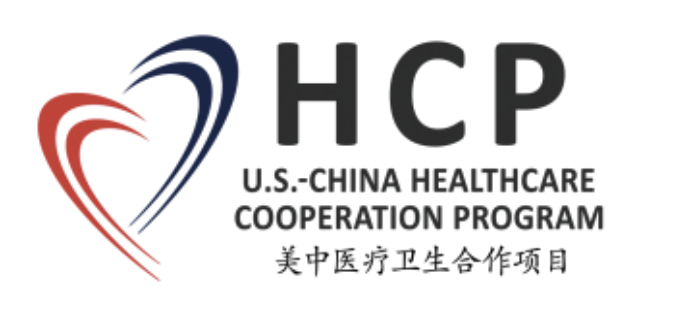In an era of growing tensions between the United States and China, Roberta Lipson brings a valuable perspective shaped by decades of experience across the two cultures. As an American who has spent nearly half a century in Beijing building a network of 11 hospitals and 25 clinics, Lipson understands the complex interplay between business, healthcare, and international relations. In this conversation with KJ Kerr of China-US Focus on the sidelines of the U.S.-China Hong Kong Forum, she speaks about her remarkable journey and offers thoughtful analysis on the future of bilateral relations amid uncertain political times.
Click to watch the full interview
KJ Kerr:
Ms. Lipson, thank you so much for joining us here in person for the U.S.-China Hong Kong Forum. We're so grateful for your willingness to share your insights. To get started, would you mind sharing a brief introduction?
Roberta Lipson
First, let me say it's wonderful to be here. It's been an extremely productive two days, and the talent, experience, and wisdom that you've brought together has been an amazing opportunity to be part of.
My name is Roberta Lipson, an American citizen who's been living in Beijing, China for the last 45 years building a healthcare company that started out distributing American medical technology and equipment to Chinese hospitals, and since has built out a platform of 11 hospitals and 25 clinics around the country. We have a patient base and a staff that integrates people both from the United States and China. So the relationship, obviously, is extremely important to me, and I've seen the benefits coming out of U.S.-China collaboration over these 45 years. And as we face this potentially difficult period, going forward with a new administration in Washington, with somewhat of an unknown as to where it will bring U.S.-China relations, it's very, very important that we've come together to have these discussions.

The US-China Healthcare Cooperation Program (HCP) was founded in 2011, based on the US-China Public Private Partnership on Healthcare (PPPH) framework announced in Jan. 2011, on the occasion of the Summit between Barack Obama and Hu Jintao. HCP’s mission is to strengthen long-term, constructive cooperation in healthcare between the US and China.
KJ Kerr
Thank you so much. I want to talk about China-U.S. collaboration, but I do want to hear a bit more of your personal story too. What brought you to Beijing originally, and what inspired you to do the incredible work you've done?
Roberta Lipson
Perhaps it was a bit of good luck — being in the right place at the right time. I started university in 1972, which is the year that Kissinger came to China. As I embarked upon learning about the world, my Chinese history class was reflecting what was in the newspapers, and the newspapers were reflecting what was in my Chinese history class. It became a really interesting unfolding story. So I decided to dive full in and learn Mandarin. And as China continued to open up, I decided that I would go to business school and find a way to insert myself into either the commercial opportunities or the business opportunities in China.
I got to Beijing in 1979 and saw amazing potential and amazing opportunities. Another one of my great interests was in medicine and healthcare, so I began to look at what the opportunities in that area were, and eventually started a company to bring U.S. technology to China and distribute medical equipment. And after 10 years of doing that, I realized that there was, in fact, more of an opportunity to bring other concepts around delivery of healthcare, not just the hardware, but the software and new approaches to service, care, and therapy.
It took four years to convince the Chinese government to allow us to open a small hospital in Beijing, and since then, it's grown into a rather large national platform for delivering the highest level of international standard care to Chinese patients, as well as international patients. We now also have clinics in Hong Kong, and the Greater Bay Area has become more and more important as a channel for Chinese patients to get international care in China, and Hong Kong patients to take advantage of the care that's available at perhaps more attractive pricing in China.
KJ Kerr:
Thank you so much for sharing. You talked about bringing U.S. tech over taps into what we’ve discussed today in our sessions regarding information sharing and collaboration between our two countries. What role do you see for the U.S. and China in addressing some of our shared global health challenges, such as pandemic preparedness and response that geopolitical challenges currently seem to be hindering?
Roberta Lipson
The opportunities are endless. I mean, we share a humanity and we share a globe, and so it's so important that we bring everything we can to solve those difficult problems. The U.S. and China had made a lot of progress in working together and addressing some of those issues, be it in climate change or medical research and public health, but things have slipped a lot. And we've talked a lot today about mutual paranoia and where that stands in the way of us working together to make progress. Unfortunately, specifically those two issues that we talked about, both climate change and healthcare, now working together, will delay progress by many, many years, as well as maybe cost many human lives. And the opportunity to work together and to prove what we have to offer each other, and that we have common care and concern, perhaps will help us to preserve peace and save lives.
![[CropImg]U.S.-China Healthcare Cooperation Program.jpg](/d/file/202501/a6316db959a02341ee113f843d15cfd3.jpg)
KJ Kerr
What are the action steps that must be taken for us to effectively cooperate in that way?
Roberta Lipson
Well, we don't know what the new government in the United States is going to bring. But assuming that perhaps it brings the worst and it amplifies the challenges that we have now, it’s important that we don't think that it's time to give up, because if the governments won't do it, it's up to us as either companies or individuals to press forward in keeping the lines of communication open and continuing not only to talk to each other, and also to talk to our governments about why talking to each other is so important. So I think that as things get more challenging on the bilateral government level, our role becomes even more important as private industry, as NGOs, as individuals, and we need to do everything we've been doing to date and more.
KJ Kerr:
What do you think is the significance of having U.S. and foreign business in China and vice versa?
Roberta Lipson
The commercial relationship between the U.S. and China has been characterized as being the ballast of the relationship, and when the ship gets rocking in a really scary way, business hangs in there. I think from that perspective, over time, business has been such an important channel and glue that keeps the relationship together through rocky times. On the other hand, China perhaps is the largest potential consumer market in the world for U.S. goods, and the U.S. needs China. It needs China's production and consumer goods produced in China in order to keep prices at an acceptable level.
Unfortunately, if President-elect Trump carries through with his promise to put 60% tariffs on Chinese goods across the board, it's going to result in terrible inflation for the United States. So we need to figure out how to keep that from happening, or if it does happen, how to keep businesses engaged so they don't give up and leave. Further fragmentation and pulling our countries apart will be really horrendous.
Besides running a company that delivers healthcare services to people in China and in Hong Kong and Greater China, I'm also the chairman of AmCham China, and I can say that our membership is very steadfast and believes in the long-term viability of the China market, and will do everything that they can to safely continue their business in China. We'll work really hard with both of our governments to make sure that the environment doesn't deteriorate and that they continue to do their business. Most of our members plan to be in China for the long-term. They're not leaving China and are even expanding their footprint. Many of them are still expanding their footprint. The economy has been kind of rough this year. But despite that, I think there's good confidence in the long-term direction of the economy. I think we've gotten a lot of confidence over the recent announcement of a stimulus package, and we would like to see more and. And hopefully we will.
KJ Kerr:
Can business achieve things in the bilateral relationship that governments can't or at least aren’t currently achieving?
Roberta Lipson
For the time being, business-to-business is kind of a no-brainer, because there's obviously profits to be made. And that, you know, if it's not altruism that keeps us engaged, which hopefully it will as well, certainly the profit motive will continue to keep businesses engaged, and as long as they have that motivation, hopefully it will push the whole relationship in the right direction.
KJ Kerr:
Lastly, do you have any recommendations for the incoming U.S. administration as they're crafting their China policy? And alternatively, any recommendations for China as they approach relations with this incoming administration?
Roberta Lipson
Hopefully they'll scrap Project 2025 and just think about one problem at a time instead of vilifying the whole country of China. And let's think about really what the endgame is. Often I wonder, looking at the government policies, have they thought past the immediate impact of this policy? I think that any leader with a conscience, if they follow the endgame down, hopefully it will be keeping the world from war. Then if they can work back from there and deal with one policy at a time, I think it would be amazing.
With the incoming administration, we have a lot of preset ideas about what they're going to do based on some of the campaign promises, but we've heard some smart people say maybe that's not how it's going to play out. And maybe, if you think from a Trumpian perspective, maybe there's a deal to be made that would benefit both countries. And I guess at this point, our biggest hope is that there is a deal to be made and that they'll think through to the endgame, and what is it that we all really want.

